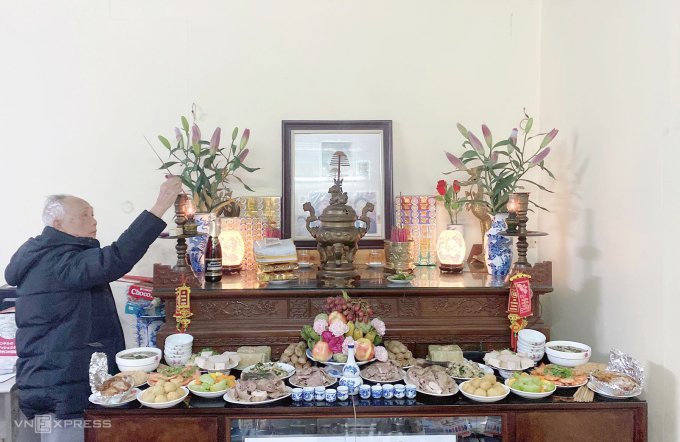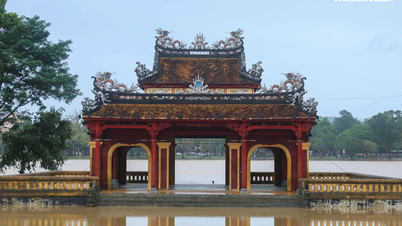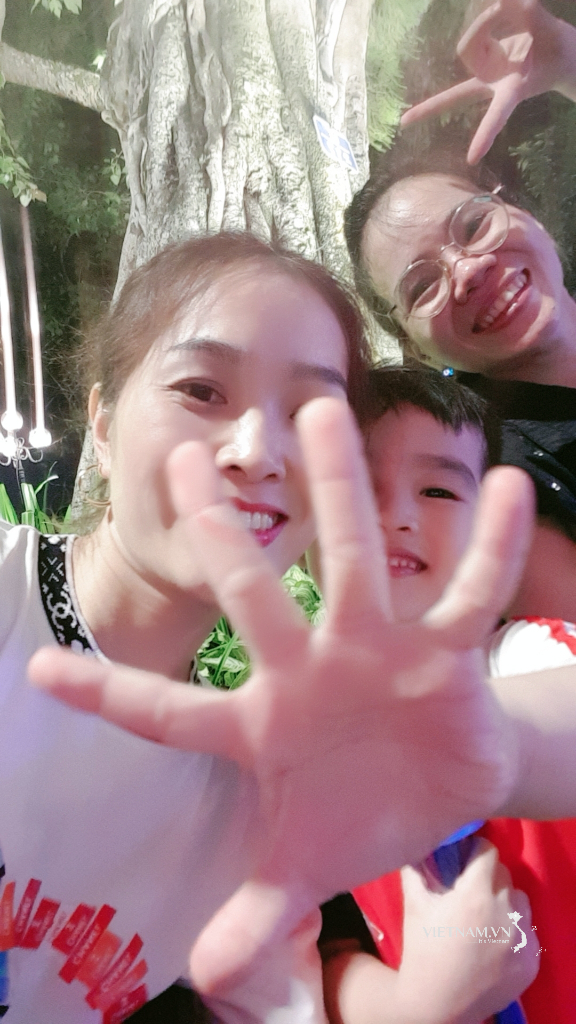The full moon of the first lunar month has several other names such as Tet Thuong Nguyen, Tet Hanging Lanterns, Tet Nguyen Tich, Tet Nguyen Tieu, associated with the origin of the solar and lunar calendars.
Some ancient documents suggest that this festival originated during the reign of Emperor Wen of Han (180-157 BC). Each year on the Lantern Festival, the emperor, officials, and commoners dressed alike, regardless of social standing, to celebrate together. This reflected a spirit of equality and a joyful, harmonious atmosphere between heaven and earth, between gods and humans. It was solemn but not overly materialistic, and not excessively elaborate in form.
The tradition of lighting lanterns on the Lantern Festival night originates from the Three Elements theory of Taoism. Taoism holds that the 15th day of the first lunar month is the Upper Yuan Festival, the 15th day of the seventh lunar month is the Middle Yuan Festival, and the 15th day of the tenth lunar month is the Lower Yuan Festival. The deities presiding over these three festivals are, respectively, the Heavenly Official, the Earthly Official, and the Water Official. The Heavenly Official is a cheerful figure who often bestows blessings upon humanity, hence also known as the Four Blessings Heavenly Official. On the 15th day of the first lunar month – the birthday of the Heavenly Official – people everywhere hang lanterns and decorate with flowers, perform rituals, offer congratulations, and pray for blessings.
Another theory suggests that the custom of lighting lamps on the Lantern Festival night originated during the reign of Emperor Ming of the Han Dynasty. Emperor Ming was a devout Buddhist, and upon hearing that on the 15th day of the first lunar month, monks often contemplated relics and offered candles to the Buddhas, he ordered the entire imperial palace to light lamps all night to worship the Buddhas. Following this tradition, the people passed down the ritual of offering sacrifices and praying for peace on the 15th day of the first lunar month.

Folklore often says, "Offering sacrifices all year round is not as good as the first full moon of the lunar year." The first full moon of the lunar year's offerings likely originated from the Taoist custom of worshipping the Heavenly Official (Tian Guan Da Di). Two typical written prayers for the first full moon of the lunar year (currently widely used in folk traditions and temples) clearly state that this day is "Tian Guan Si Fu" (meaning the Heavenly Official bestows blessings) and praise the merits and divine power of the Heavenly Official.
The full moon of the first lunar month of the Year of the Dragon 2024 falls on Saturday, February 24th. According to the Chinese calendar, it is the day of Mau Ngo, the month of Bing Dan, the element of Heavenly Fire, the star Wei, the direction of Chap, clashing with the Rat zodiac sign, and facing North. This day is considered inauspicious for groundbreaking ceremonies, roofing, building kitchens, sowing seeds, and consecrating religious artifacts. Auspicious hours include the hours of Ty (23-1h), Suu (1-3h), Mao (5-7h), Ngo (11-13h), Than (15-17h), and Dau (17-19h).
The full moon of the first lunar month, like the full moon and first day of other months, should be celebrated on the exact day and there's no need to choose a specific time.
Regarding offerings, families can prepare according to their means. However, folklore suggests that the Heavenly Emperor is a cheerful person with a sweet tooth and a fondness for candles. Therefore, offerings should include plenty of fruits, sweets (such as glutinous rice balls, vegetarian cakes, and honey cakes), and candles.
Regarding rituals, families should decorate their homes and altars solemnly and beautifully. The head of the household should dress neatly and cleanly, preferably in nice clothes. Everyone should maintain a cheerful and harmonious attitude, avoiding arguments or inappropriate speech during the ceremony.
The prayer for the Full Moon Festival in the first lunar month can utilize the prayer text introduced by Venerable Thich Nguyen Tam.
Content:
We respectfully offer this ceremony, inviting the "Great Emperor of the Purple Star, the First Rank, to bear witness to the blessings of the Four Blessings of the Upper Yuan." The Great Emperor of the Purple Star, whose power encompasses the three realms, whose divine might is awe-inspiring, whose sacred eyes shine brightly. The blessings of the Upper Yuan are boundless; the mortal world humbly prays for his benevolent grace.
Today, on the occasion of the Lantern Festival, may Heaven bestow blessings everywhere. The petitioner, [Name], residing at [Address], sincerely cleans the house, prepares incense, flowers, candles, and offerings... to present before the altar. We pray that the deity will dispel past grievances, increase blessings, and grant peace and happiness to all.
At the same time, we respectfully invite the household deities, the guardian spirits of the land, the Kitchen God, the household's governing deities, the Five Directions and Five Lands' Gods of Fortune and Virtue, the Five Directions and Five Paths' Dragon Vein Gods of Wealth, and the ancestral council of the family lineage... to witness this ceremony. Respectfully announced. Please partake! (Three bows).
Cultural researcher Pham Dinh Hai
According to Vnexpress.net
Source


































































































Comment (0)